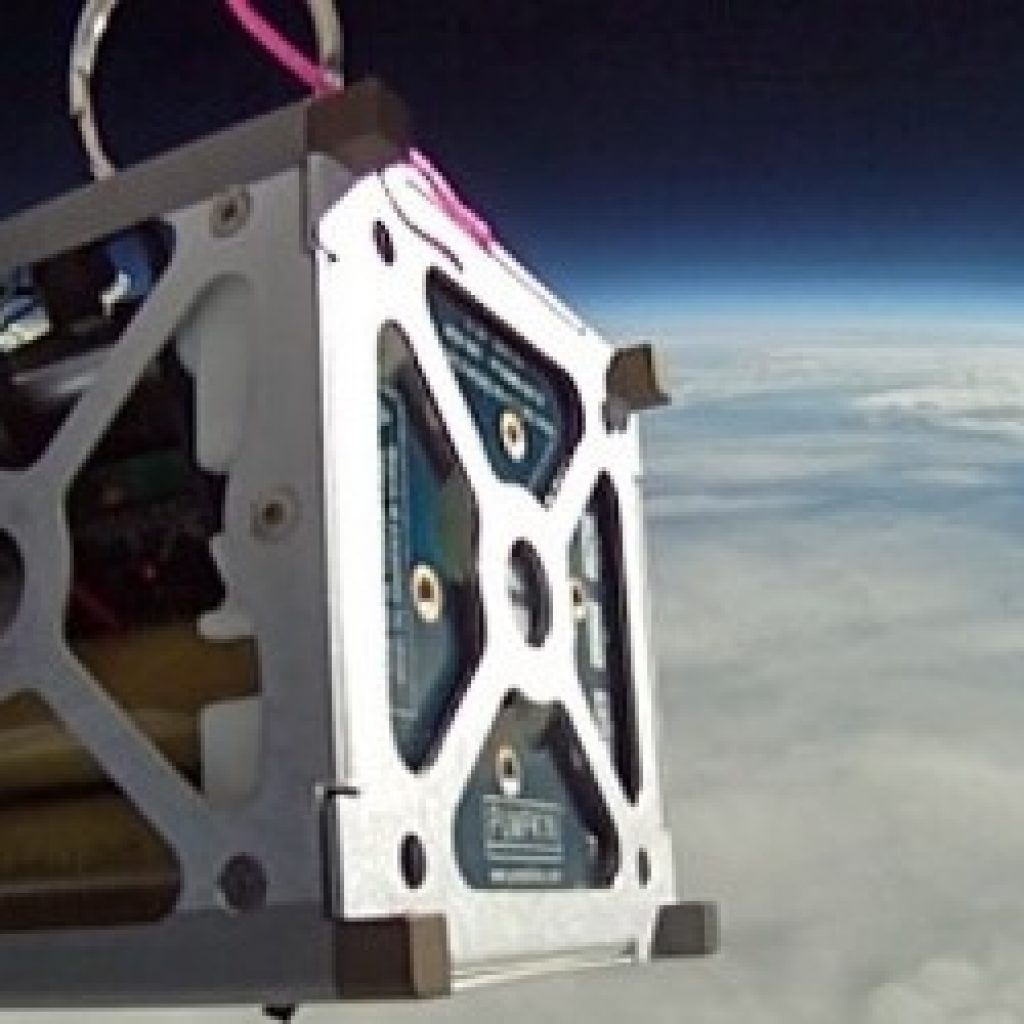(SpaceFlightNow) Tests are beginning this week at Cape Canaveral Space Force Station for the first flight of Astra’s small satellite launcher from the Florida spaceport, following the company’s successful November demonstration mission from Alaska.
Astra’s rocket will also launch a CubeSat mission developed by the University of California, Berkeley. Named QubeSat, the small spacecraft will test a tiny gyroscope, a device used to help determine the orientation of satellites in space.
The gyroscope technology flying on the QubeSat mission is based on quantum mechanical interactions in imperfect diamonds, according to UC Berkeley. The gyroscope is created by blasting a synthetic diamond with nitrogen, which takes the place of some of the mineral’s carbon atoms, creating so-called “nitrogen-vacancy centers” that are very sensitive to magnetic fields.
Small spacecraft need miniature components, and the quantum gyroscope on the QubeSat mission can be sized to fit into a nanosatellite. Engineers will test the functionality of the quantum gyroscope over several months in orbit.
The QubeSat website explains: This project is well aligned to the Second Quantum Revolution, a recent scientific phenomenon whereby quantum effects are utilized in technology to achieve better sensitivity and lifetime. CubeSats offer a perfect platform to inexpensively test new technologies such as quantum gyroscopes, because industry cannot risk the success of a full scale, multi-million dollar payload being contingent on a brand new sensor technology. The result of this project could prompt future launches to test the technology further and qualify it for consistent use in space, which could be a major step forward in the technological development of small satellites.
The entire QubeSat spacecraft weighs just 5.5 pounds (2.5 kilograms), according to NASA.
Astra’s launch vehicle, dubbed Rocket 3.3 and known by its tail number LV0008, has shipped from the company’s headquarters and factory in Alameda, California, to Cape Canaveral for testing ahead of liftoff later this month.
Founded in 2016, the company aims to eventually conduct daily launches with small satellites, targeting a niche in the launch market cramped with competitors such as Rocket Lab, Virgin Orbit, and Firefly Aerospace, each of which has begun flying small launch vehicles. Numerous other companies are months or years away from debuting their smallsat launchers.
